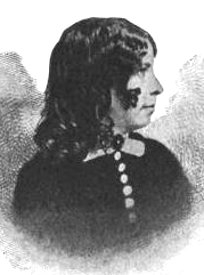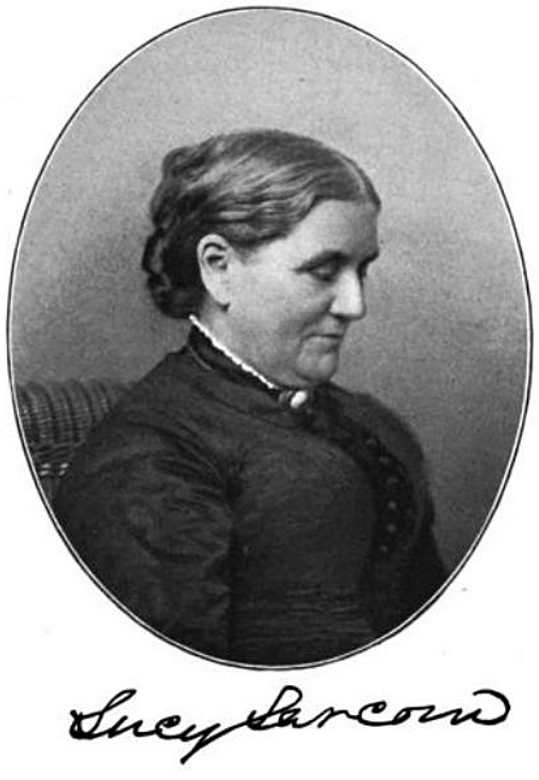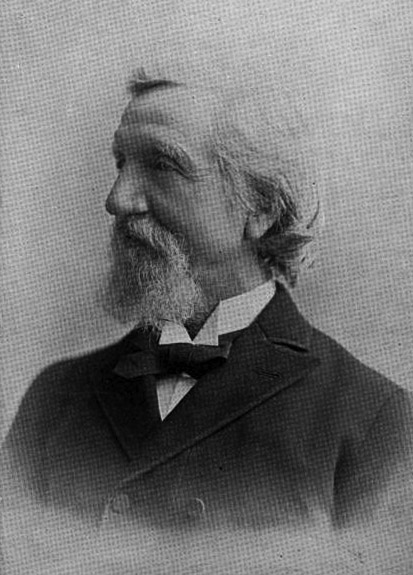Our Young Folks. An Illustrated Magazine for Boys and Girls. Vol 1, Issue 6: June 1865
This book is a member of the special collection Periodicals Collection
Book Details
Author Bio for Dodge, Mary Abigail

Mary Abigail Dodge (March 31, 1833 - August 17, 1896) was an American writer and essayist, she wrote under pseudonym Gail Hamilton. Her writing is noted for its wit and promotion of equality of education and occupation for women. She disliked attention, however, and chose the pen name Gail Hamilton, combining the last part of her middle name with her place of birth. Her essays were best known for their harshness towards men.--Wikipedia.
Author Bio for Larcom, Lucy

Larcom was born in Beverly, Massachusetts in 1824 as the ninth of ten children. Her father died when she was eight years old, causing her mother to become a boardinghouse keeper to bring in income for the family. At age eleven in 1835 she left home to work in cotton mills in Lowell as a doffer, hoping to earn some extra money for her family. She made a huge impact during her 10 years there; she wrote many songs, poems, and letters describing the mill-girl life, and got them published, and her idealistic poems caught the attention of John Greenleaf Whittier. She served as a model for the change in women's roles in society.
She was a friend of Harriet Hanson Robinson, who worked in the Lowell mills at the same time and who also became a poet and author. Much later, Robinson would become prominent in the women's suffrage movement. Both contributed to the literary magazine Lowell Offering.
In the 1840s (circa 1846), Larcom taught at a school in Illinois before returning to Massachusetts. She went on to become one of the first teachers at Wheaton Female Seminary (now Wheaton College) in Norton, Massachusetts and taught there from 1854 to 1862. While there she helped to found Rushlight Literary Magazine, a submission-based student literary magazine which is still published today. From 1865 to 1873 she was the editor of the Boston-based Our Young Folks, which merged with St. Nicholas Magazine in 1874.
In 1889 Larcom published one of the best-known accounts of New England childhood of her time, A New England Girlhood, commonly used as a reference in studying antebellum American childhood. This autobiographical text covers the early years of her life, in Beverly Farms and Lowell, Massachusetts.--Wikipedia.
Author Bio for Trowbridge, John Townsend

His novels include Neighbor Jackwood (1857), an antislavery novel; The Old Battle-Ground (1859); Cudjo's Cave (1864); The Three Scouts (1865); Lucy Arlyn (1866); Neighbors' Wives (1867); Coupon Bonds, and Other Stories (1873); and Farnell's Folly. Another is Evening At The Farm.
Trowbridge wrote numerous works under the pseudonym of Paul Creyton, including The Midshipman's Revenge (1849), Kate the Accomplice, or, The Preacher and the Burglar (1849), The Deserted Family, or, Wanderings of an Outcast (1853), Father Brighthopes, or, An Old Clergyman's Vacation (1853), Burr Cliff: its Sunshine and its Clouds (1853); Martin Merrivale: His X Mark (1854), Iron Thorpe (1855), Neighbor Jackwood (1857).
Among his very many juvenile tales are The Drummer Boy, The Prize Cup, The Lottery Ticket, The Tide-Mill Stories, The Toby Trafford Series, The Little Master, and the Jack Hazard series. His published volumes of verse include: The Vagabonds, and Other Poems; The Emigrant's Story, and Other Poems; A Home Idyl, and Other Poems; The Lost Earl; and The Book of Gold, and Other Poems. The Vagabonds, At Sea, and Midsummer are among his best-known poems. His long poem Guy Vernon: A Novelette in Verse was first published anonymously in the compilation A Masque of Poets (1878).
In Darius Green and his Flying Machine, Trowbridge penned the following prophetic verse: "Darius was clearly of the opinion / That the air is also man's dominion / And that with paddle or fin or pinion, / We soon or late shall navigate / The azure as now we sail the sea."
He is today perhaps best remembered for his study The South: A Tour of Its Battlefields and Ruined Cities (1866, republished two years later with additions by another author as A Picture of the Desolated States and the Work of Reconstruction, 1865-1868). Trowbridge toured much of the defeated Confederacy during the summer of 1865 and the following winter. He observed carefully, and talked with a wide variety of people of both sexes, including freedmen, die-hard Rebels, Unionists, farmers, businessmen, refugees, and Northern entrepreneurs. In his book, he lets these people speak in their own voices, often adding his own perceptive comments. His book can profitably read with those of John Richard Dennett (The South As It Is: 1865-1866) and Whitelaw Reid (After the War: A Tour of the Southern States, 1865-1866). All three accounts are written from the perspective of a loyal and fair Northerner, genuinely concerned about conditions in the South and the evolving policies of the United States towards that section.
From 1870 to 1873 Trowbridge was co-editor with Lucy Larcom of Our Young Folks.--Wikipedia.
Available Formats
No book directory. Upload has not been completed.This book is in the public domain in Canada, and is made available to you DRM-free. You may do whatever you like with this book, but mostly we hope you will read it.
Here at FadedPage and our companion site Distributed Proofreaders Canada, we pride ourselves on producing the best ebooks you can find. Please tell us about any errors you have found in this book, or in the information on this page about this book.
